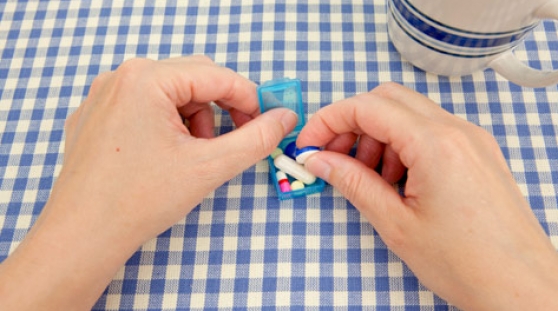Arrhythmia Health Center
Table of Contents

The most common treatments for arrhythmia are medicines, medical procedures, and surgery. Treatment may be recommended if the arrhythmia is causing serious symptoms or if it is increasing the patient's risk for sudden cardiac arrest, stroke, heart failure, or other serious conditions.
Medication
There are medicines that can slow down a fast heart rate. There are also some that can cause a irregular heart beat to have a normal rhythm. Theses medicines are called antiarrhythmics.
Also used to treat atrial fibrillation, medicines used to slow down a fast heart rate include:
- Beta blockers, such as metoprolol and atenolol
- Calcium channel blockers, such as diltiazem and verapamil
- Digoxin or digitalis
Medicines used to regulate the heart's rhythm include:
- Amiodarone
- Sotalol
- Flecainide
- Propafenone
- Dofetilide
- Ibutilide
- Quinidine
- Procainamide
- Disopyramide
Many of these medications may have side effects, and it is possible for some side effects to make an arrhythmia worse. There is not yet a medication that can speed up a heart rate; Slow heart rates are treated with pacemakers. Medication is also used to treat underlying medical conditions that cause arrythmias.
Medical Procedures
If an arrhythmia is serious, urgent treatment is needed to restore a normal rhythm. These treatments include:
- Electrical "shock" therapy (cardioversion or defibrillation). This is an electric jolt to the heart.
- Implantation of a temporary pacemaker to interrupt the arrhythmia. This is a small device that is placed under the skin on the chest. They have sensors that detect the electrical signals in the heart and send out electrical pulses to help the heart beat normally.
- Implantable cardioverter defibrillator (ICD). Patients who have a risk for ventricular fibrillation are sometimes treated with this device. It is similar to a pacemaker in that it is placed under the skin on the chest and also uses electrical pulses. However, this device monitors the heartbeat continuously and sends out an electric shock to the heart when a serious ventricular arrhythmia is detected.
- Catheter ablation. This is a medicine delivered through a vein in the patient's arm, upper thigh, or neck through to the patients heart. This medicine eliminates small parts of the heart tissue where the irregular heart rhythms might be starting. This procedure is normally done in a hospital as part of a electrophysiology study.
Surgery
Some arrhythmias might be treated with surgery. If surgery is going to be performed for another reason, such as repairing a heart valve, then the doctor might also treat the arrhythmia.
Maze surgery is one type of surgery used to treat arrhythmias. In this procedure, a surgeon will make small cuts or burns in the patient's atria. These will help keep the disorganized electrical impulses from spreading.
If the patient has coronary heart disease that is causing an arrhythmia, a procedure called coronary artery bypass grafting may be recommended. This procedure is used to help blood flow to the heart muscle.
Other
Other treatments that might be used to treat arrhythmias are called Vagal maneuvers. Sometimes these simple exercises are able to help stop or slow certain types of arrhythmias. The exercises affect the vagus nerve - a nerve that helps control the heart rate. These exercises are not the best treatment for everyone. A doctor may suggest them as am option if they are appropriate.
Some of these exercises are:
- Coughing or gagging
- Valsalva maneuver. This involves holding one's breath and bearing down.
- Immersion of the face in ice-cold water
- Putting one's fingers on their eyelids and gently pressing down
